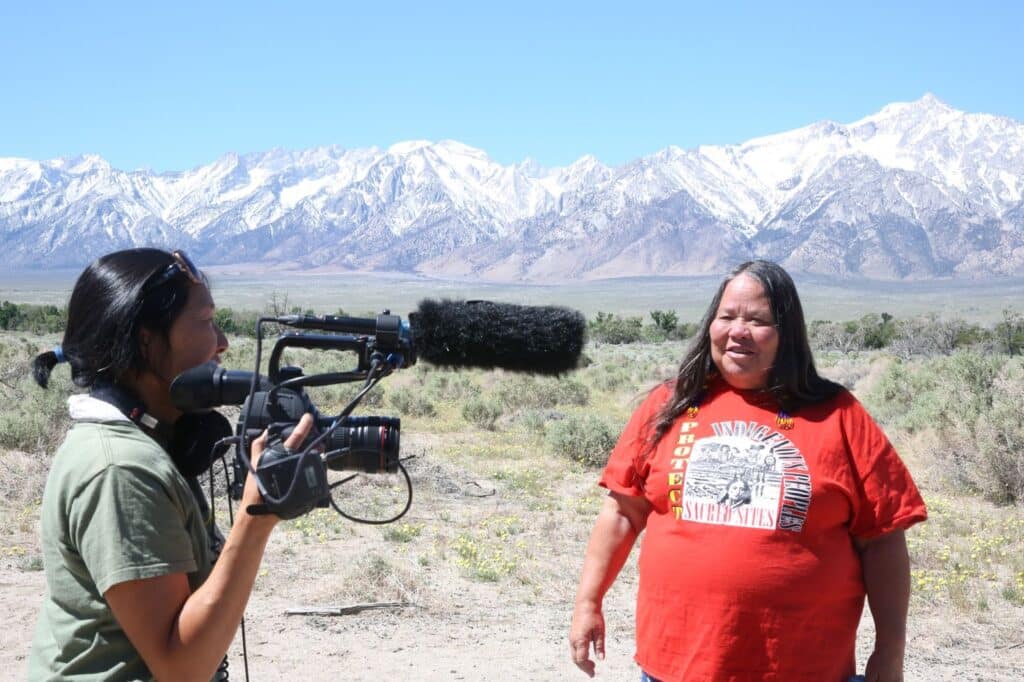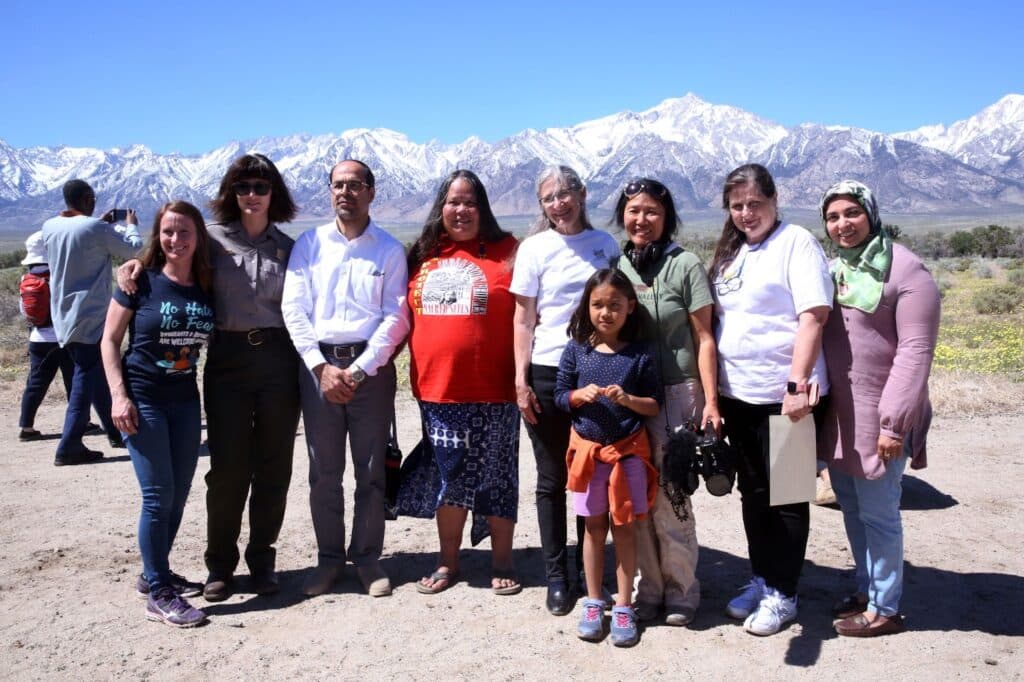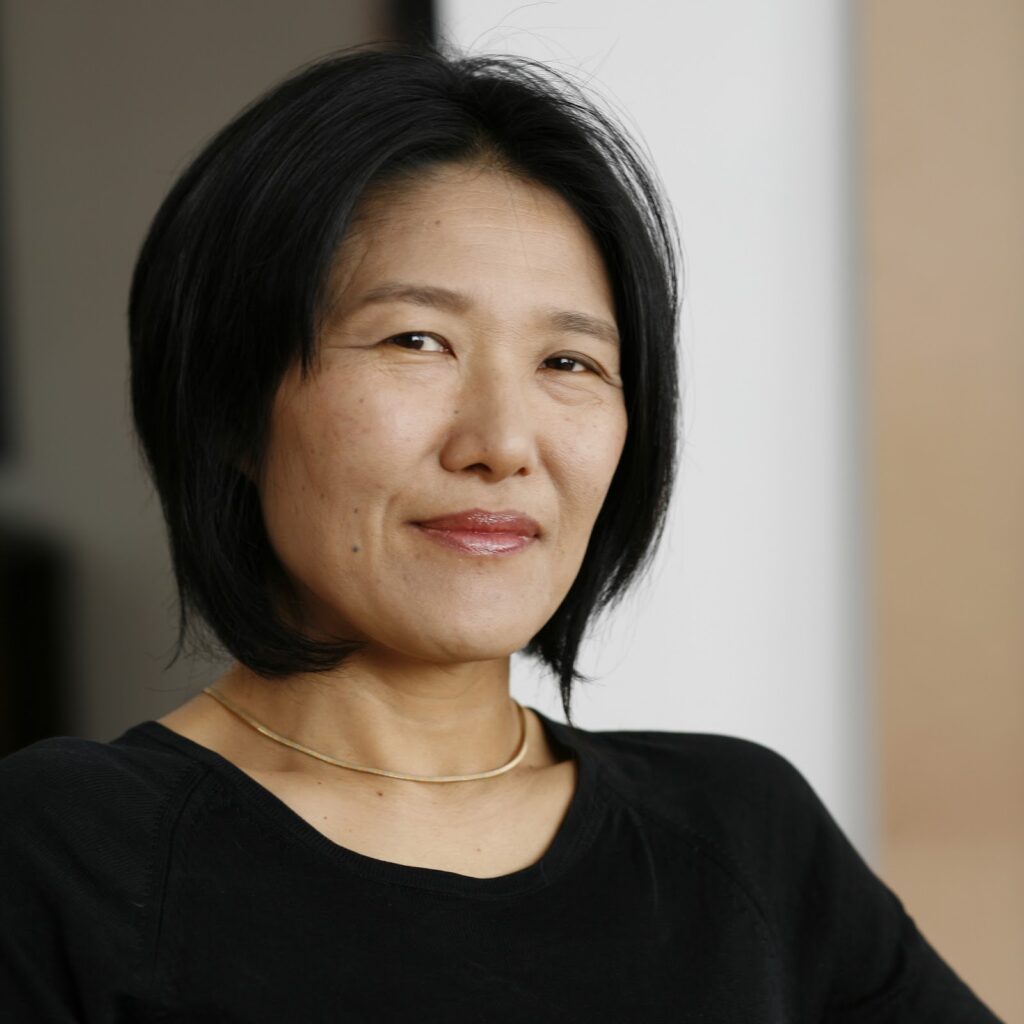
Decolonizing Power and Rebuilding Trust
By Ann Kaneko and Jin Yoo-Kim
In the film Manzanar, Diverted: When Water Becomes Dust, intergenerational women from Native American, Japanese American, and rancher communities form an unexpected alliance to defend their land and water. In this blog we hear from Ann Kaneko, Director and Producer of Manzanar, Diverted, Producer and Impact Producer Jin Yoo-Kim on how they centered community and consent in their filmmaking process.
What does decolonizing a documentary film practice look like? When we embarked on making Manzanar, Diverted: When Water Becomes Dust, we wanted to make a holistic, intersectional, community-based film that took into consideration legacies of lopsided power dynamics, accountability, and consent.
In the past, many communities of color have been betrayed by outsider storytellers. These outsiders, even if well-intentioned, didn’t realize how they were commodifying people’s lives and how their unwillingness to share power with community members limited how stories were told. We knew that we were tasked with rebuilding broken trust and charting a new path that did not follow the extractive filmmaking practices of past generations. We were also questioning how we could push the boundaries of traditional filmmaking that embodies a more holistic and equitable approach.
Our film portrays three communities–Nüümü and Newe from Payahuunadü, Japanese Americans, and ranchers turned environmentalists. We view our participants as collaborators, not subjects or characters, and try to involve them in the filmmaking process so that they can push back if they need to. However, sharing power isn’t always easy.
In practice, it could mean adjusting deadlines and relinquishing creative control, especially if community members want something changed. It could be costly to make these revisions, but we don’t think there is another option. Community partners come first, and we need to listen to them, respect their input, and commit to figuring out ways to tell stories that work for all involved. It’s about striking a balance between everyone’s goals and interests.

Just like the environmental space, which is reckoning with the legacy of early conservationists like John Muir and John James Audobon, documentary film has its own history of colonialist-minded filmmakers like Robert Flaherty, who produced Nanook of the North, heralded as the “first feature documentary.” This film embodies the White man’s nostalgic gaze, exotifying an Inuit culture that was already changed by Western influence. In contrast, our point of entry was based on solidarity with our community partners, not a charitable view of dispossession and loss.

Monica Mariko Embrey, a Sierra Club organizer, who appears in the film, has said how the filmmaking process for Manzanar, Diverted: When Water Becomes Dust was a reflection of the Jemez Principles, which has become a foundation for environmental justice organizing. This has helped us to ground our impact campaign and future filmmaking practices in a much longer tradition of social justice organizing.
Throughout the filmmaking process, we have been humbled by the generosity of our partners, but we also acknowledge that working towards this kind of reciprocity requires patience and a commitment to respect and listening.
Community partners are not working on the same schedule nor do they have the same interests in what supposedly makes “a good story.” We have learned that this process takes time and a leap of faith, but we can’t imagine making a film like this one in any other way.

Learn mire about Manzanar, Diverted: When Water Becomes Dust at https://manzanardiverted.com/.

Emmy winner ANN KANEKO is known for her personal films that weave her intimate aesthetic with the complex intricacies of political reality. Ann directed and produced Manzanar, Diverted: When Water Becomes Dust, a feature documentary exploring California water issues through the eyes of Native Americans and Japanese American WWII incarcerees. She was a Fulbright and Japan Foundation Artist fellow and funded by the Hoso Bunka Foundation and Center for Cultural Innovation. She is a Film Independent Doc Lab fellow, a Jackson Wild Multicultural Alliance fellow, and she currently teaches Media Studies at Pitzer College.

JIN YOO-KIM is a Bolivian-born Korean American filmmaker who directed for Take Out With Lisa Ling and is in development for her docuseries Cult Foods. She is currently producing and impact producing Manzanar, Diverted. She is an impact mentor for A-DOC and the West Coast South board member for the Documentary Producers Alliance. Jin is a Sundance Women to Watch Adobe Fellow, as well as past fellow of Sundance Creative Producers, Film Independent X CNN Docuseries, Film Independent Doc Lab, and Firelight Media Impact Producers.
